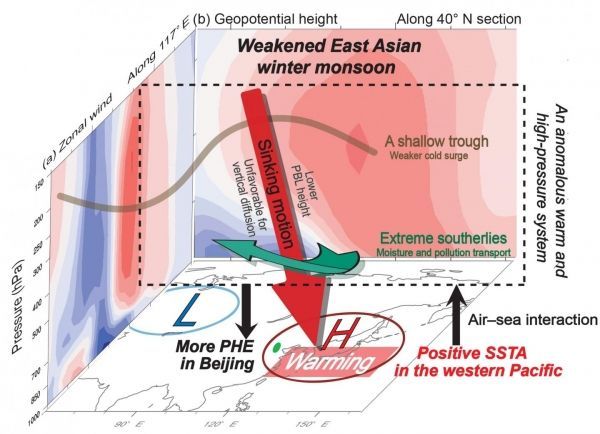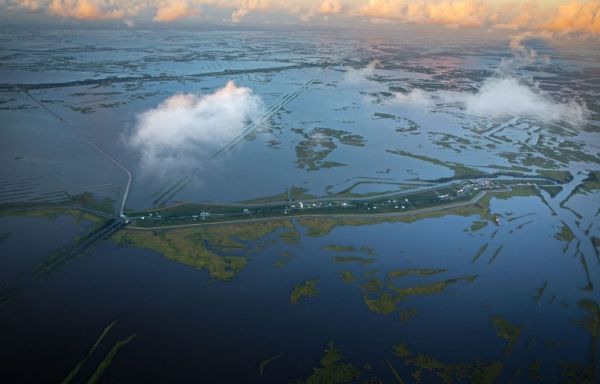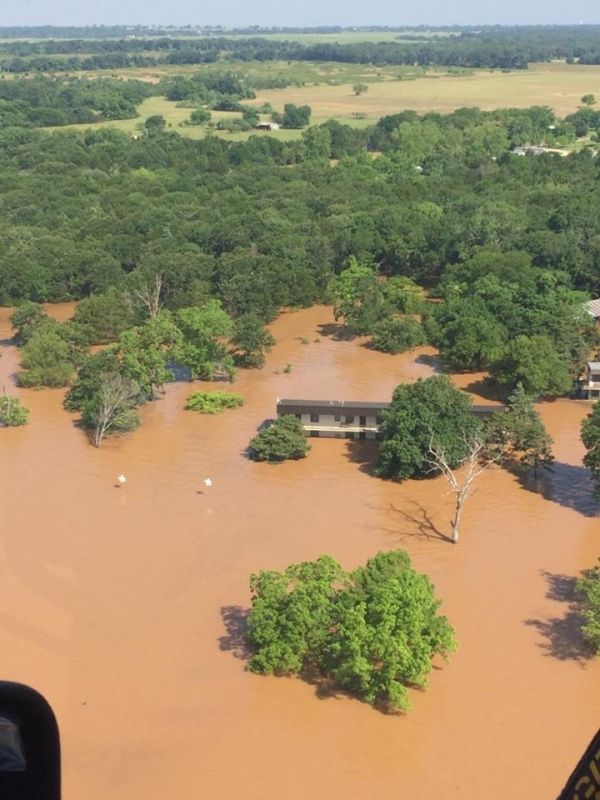NASA got an inside look at the heavy rainfall within developing Tropical cyclone Eliakim. The new tropical cyclone that may affect Madagascar in a few days has been generating an impressive rate of rain.
articles
Large-scale Climatic Warming Could Increase Persistent Haze in Beijing
Over the past decades, Beijing, the capital city of China, has encountered increasingly frequent persistent haze events (PHEs). Severe PHEs not only lead to a sharp decrease in visibility, causing traffic hazards and disruptions, and, hence, affecting economic activities, but also induce serious health problems such as respiratory illnesses and heart disease. While the increased pollutant emissions serve as the most important reason, changes in regional atmospheric circulation associated with large-scale climate warming are found to play a role as well.
On the Louisiana Coast, A Native Community Sinks Slowly into the Sea
Spring arrived early this year for Isle de Jean Charles. The southern gulf breeze is refreshing after an atypical freeze here deep in the Louisiana marsh. It’s late February and the thick vegetation is already sprouting a bright, luxuriant green. The birdsong threatens to drown out conversation. In a matter of weeks, shrimp, speckled trout, and redfish will be running. For members of this tribe of Biloxi-Chitimacha-Choctaw Indians, this is nothing short of paradise.
After a Flood, How Do Insects and Other Invertebrates Recover?
After a 100-year flood struck south central Oklahoma in 2015, a study of the insects, arthropods, and other invertebrates in the area revealed striking declines of most invertebrates in the local ecosystem, a result that researchers say illustrates the hidden impacts of natural disasters.
Land Under Water: Estimating Hydropower’s Land Use Impacts
One of the key ways to combat global climate change is to boost the world’s use of renewable energy. But even green energy has its environmental costs. A new approach describes just how hydropower measures up when it comes to land use effects.
Even More Evidence that Electric Cars Could Save the Planet
Everyone's Saying It: The future of driving is electric. The big-name car companies have plans to start giving Tesla some tough competition. Jaguar’s I-Pace electric SUV will be on sale soon, and Porsche is teasing a new concept Mission E Cross Turismo, which looks like an SUV’d Panamera (in a good way). And normal cars for regular people are going the same way. Combined, Ford and GM plan to offer 34 full electric models in the next five years.










